
A new gateway to global antimicrobial resistance data
New online portal connects bacterial genomes with experimental resistance data to support antimicrobial resistance research.
SCIENCE & TECHNOLOGY2025
science-technologytechnology-and-innovation
Showing results out of

New online portal connects bacterial genomes with experimental resistance data to support antimicrobial resistance research.
SCIENCE & TECHNOLOGY2025
science-technologytechnology-and-innovation

By making the world’s microbial DNA easier to explore, LexicMap helps researchers track outbreaks, study antibiotic resistance, and understand microbial diversity.
SCIENCE & TECHNOLOGY2025
research-highlightsscience-technology

Researchers dive into the pre-antibiotic history of bacterial plasmids to understand the spread of treatment-resistant infections worldwide.
2025
research-highlights
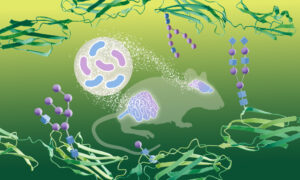
Scientists have discovered that gut bacteria can alter molecular signatures in the brain, using a brand new method to study how carbohydrates modify proteins.
SCIENCE & TECHNOLOGY2025
science-technology

New Head of the Microbial Automation and Culturomics Core Facility discusses her career, her goals for the facility, and her early inspirations.
PEOPLE & PERSPECTIVES2024
people-perspectives
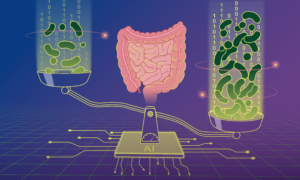
Scientists have developed a new machine-learning model to predict microbial load — the density of microbes in our guts — and used it to demonstrate how microbial load plays an important role in disease-microbiome associations.
SCIENCE & TECHNOLOGY2024
science-technology

EMBL’s Scientific Visitor Programme enables high-level scientific exchange and cross-fertilisation of ideas and technologies through sabbatical fellowships for researchers.
CONNECTIONS2024
connections
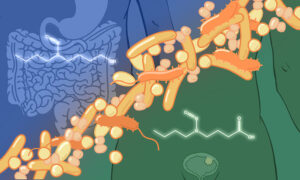
Study shows that gut bacteria can metabolise carcinogens and cause them to accumulate in distant organs, leading to tumour development.
SCIENCE & TECHNOLOGY2024
science-technology
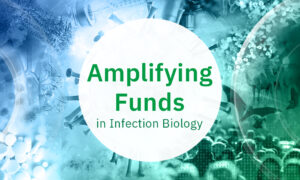
EMBL and partners announce ‘Amplifying Funds in Infection Biology’ to foster interdisciplinary and collaborative research in infection biology.
EMBL ANNOUNCEMENTS2024
embl-announcements
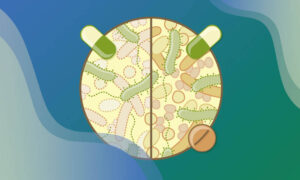
EMBL researchers and their partners have been studying microbial functions and interactions for the benefit of human and planetary health for the last two decades.
SCIENCE & TECHNOLOGY2024
science-technology
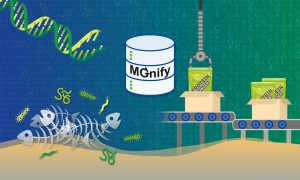
EMBL-EBI data resource helps scientists upcycle animal by-products.
SCIENCE & TECHNOLOGY2024
perspectivesscience-technology
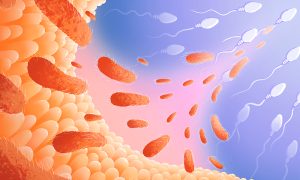
Scientists from EMBL Rome and EMBL Heidelberg found that disrupting the gut microbiome of male mice increases the risk of disease in their offspring. Their findings suggest that a father’s pre-conception environment can have lifelong effects on offspring.
SCIENCE & TECHNOLOGY2024
science-technology

Jacqueline shares her experience of EMBL's international PhD programme.
LAB MATTERSPEOPLE & PERSPECTIVES2024
lab-matterspeople-perspectives

An interdisciplinary collaboration between Hamburg scientists has yielded new insights into the structure and function of a heat-resistant enzyme from an exotic microbe. In this interview, EMBL Hamburg’s Matthias Wilmanns and TUHH’s Garo Antranikian discuss how their collaboration developed and…
SCIENCE & TECHNOLOGY2023
sciencescience-technology

Jan Kosinski, Julia Mahamid, and Georg Zeller have received grants to enable ambitious projects aimed at mapping the cellular protein synthesis machinery in context and understanding complex host-microbiome interactions, respectively.
EMBL ANNOUNCEMENTS2023
embl-announcementsscience

Here are six takeaways from a recent EMBO/EMBL symposium that brought together scientists to discuss the state of research involving the human microbiome and its connection to health and disease.
SCIENCE & TECHNOLOGY2023
eventsscience-technology
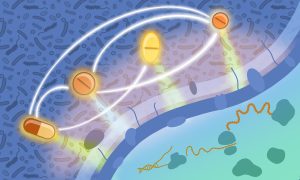
In an extensive investigation, EMBL researchers have tested over 10,000 drug combinations against some of the leading pathogenic bacteria carrying antimicrobial resistance and causing mortality.
SCIENCE & TECHNOLOGY2023
sciencescience-technology

Jordi van Gestel and Maria Zimmermann-Kogadeeva each receive 1.5 million EUR funding for research projects on microbial predators and the gut microbiome respectively
EMBL ANNOUNCEMENTSLAB MATTERS2023
embl-announcementslab-matters

EMBL-EBI Senior Scientist Rob Finn explains why data coordination and sharing are fundamental for a sustainable blue economy.
PEOPLE & PERSPECTIVES2023
people-perspectivesperspectivesscience
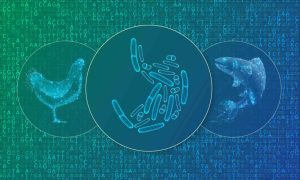
HoloFood, the first consistent collection of multiomic data about chicken and salmon gut microbiomes, set to enable the development of better animal feeds.
SCIENCE & TECHNOLOGY2023
sciencescience-technologytechnology-and-innovation

As a postdoc Alex Almeida used bioinformatics to push the boundaries of what we know about the gut microbiome. Here, Almeida explains how his time at EMBL-EBI generated new research avenues, and how the skills and connections from his postdoc prepared him for leading his own research group at the…
PEOPLE & PERSPECTIVES2023
people-perspectivesperspectives

Rob Finn, one of the co-chairs of the Microbial Ecosystems theme, discusses his work, the challenges of multidisciplinary research, and how the theme is already helping to promote the exchange of scientific ideas.
LAB MATTERSPEOPLE & PERSPECTIVES2023
lab-matterspeople-perspectives

Three EMBL scientists received this year’s ERC Starting Grants, and will be awarded €1.5 million over five years to carry out research projects.
EMBL ANNOUNCEMENTSLAB MATTERS2022
embl-announcementslab-matters

Looking to understand microbial predator-prey relationships, EMBL’s newest group leader tackles a molecular ‘arms race’ in his lab.
LAB MATTERSPEOPLE & PERSPECTIVES2022
lab-matterspeople-perspectives

EMBL researchers used data from over 300 human faecal microbiota transplants to gain an ecological understanding of what happens when two gut microbiomes clash.
SCIENCE & TECHNOLOGY2022
sciencescience-technology
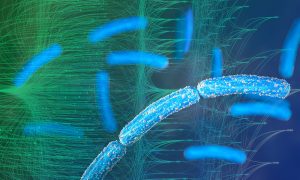
Machine learning has helped researchers uncover new insights into how bacteria infect host cells.
SCIENCE & TECHNOLOGY2022
research-highlightssciencescience-technology
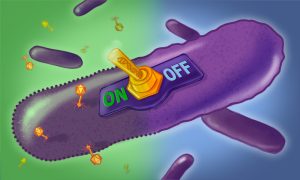
EMBL researchers now understand the function of an elusive small DNA in bacteria and have developed a tool that can be used to better understand what might ‘switch on’ bacterial immune defences.
SCIENCE & TECHNOLOGY2022
sciencescience-technology

Cornelius Gross, Miki Ebisuya and Nassos Typas join EMBO, the prestigious organisation for the life sciences.
EMBL ANNOUNCEMENTSLAB MATTERS2022
embl-announcementslab-matters

Pascale Cossart, one of the world’s foremost authorities on the biology of Listeria, brings four decades of expertise in intracellular bacterial parasitism to EMBL as a visiting scientist.
LAB MATTERSPEOPLE & PERSPECTIVES2022
lab-matterspeople-perspectives

John Lees joins EMBL-EBI as a Group Leader in Pathogen informatics and modelling.
LAB MATTERSPEOPLE & PERSPECTIVES2022
lab-matterspeople-perspectives
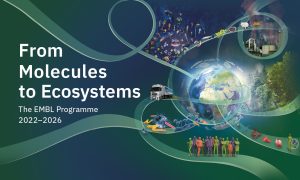
EMBL announces details about its next programme, ‘Molecules to Ecosystems’. It will guide studying life across scales and in context with changing environments.
EMBL ANNOUNCEMENTSLAB MATTERS2022
announcementsembl-announcementslab-matters

Maria Zimmermann-Kogadeeva is one of EMBL’s newest group leaders and a computational biologist whose research group applies computational modelling to better understand the metabolism of gut bacteria and their potential to have far-reaching impacts on other organs.
LAB MATTERSPEOPLE & PERSPECTIVES2021
lab-matterspeople-perspectives
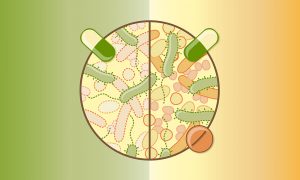
Researchers from EMBL’s Typas group and collaborators have analysed the effects of 144 antibiotics on the wellbeing of gut microbes. The study improves our understanding of antibiotics’ side effects and suggests a new approach to mitigating the adverse effects of antibiotics therapy on gut…
SCIENCE & TECHNOLOGY2021
sciencescience-technology
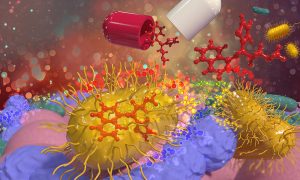
A new collaborative study led by EMBL group leaders Kiran Patil, Nassos Typas, and Peer Bork has found that common medications accumulate in human gut bacteria. This process reduces drug effectiveness and affects the metabolism of common gut microbes, thereby altering the gut microbiome.
SCIENCE & TECHNOLOGY2021
sciencescience-technology
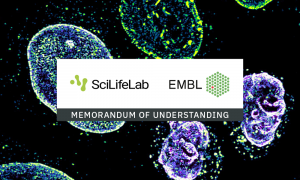
EMBL and the Swedish Science for Life Laboratory sign agreement to advance science together.
CONNECTIONSLAB MATTERS2021
connectionslab-matters
No results found